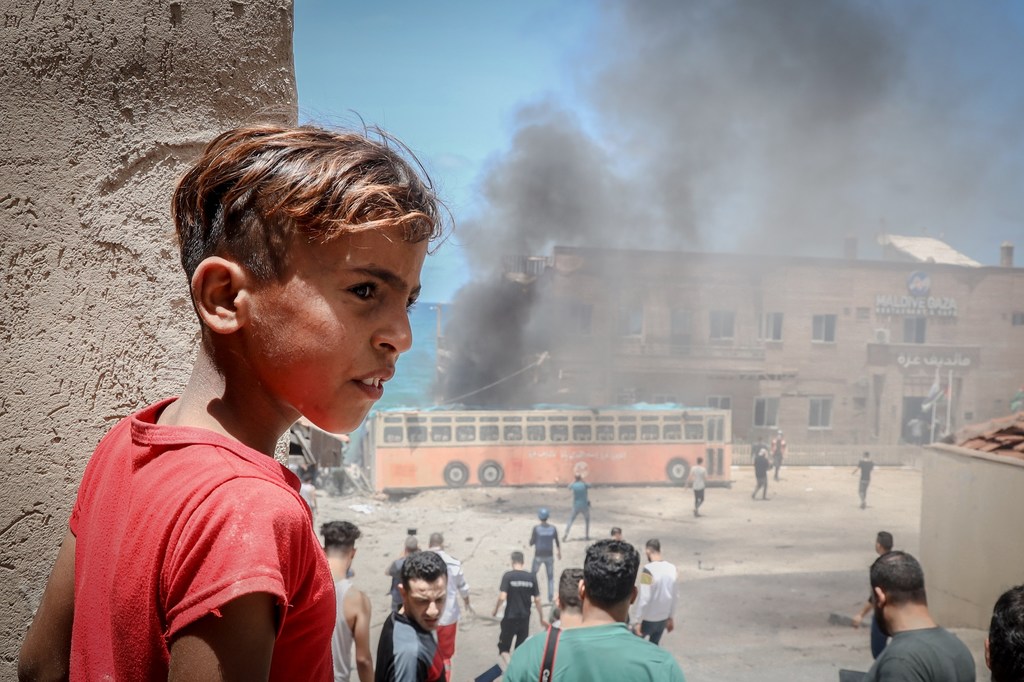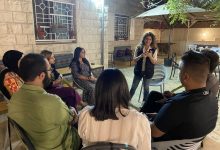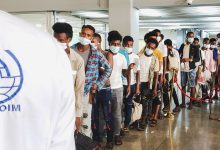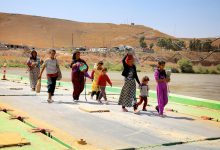UN rights chief calls for inclusive peace process to end Palestine occupation
 UN rights chief Michelle Bachelet called on Thursday for a “genuine and inclusive peace process” to end the Israeli occupation of Palestine and a repeat of recent deadly clashes that have been marked by possible war crimes by Israeli security forces.
UN rights chief Michelle Bachelet called on Thursday for a “genuine and inclusive peace process” to end the Israeli occupation of Palestine and a repeat of recent deadly clashes that have been marked by possible war crimes by Israeli security forces.
In comments to the Human Rights Council in Geneva – which stopped short of supporting a call for an international probe into the escalation in the Occupied Palestinian Territory and Israel – Ms. Bachelet condemned indiscriminate rocket attacks by Gaza’s de facto authority Hamas, which claimed 10 lives in Israel, and strikes inside the enclave by Israeli Security Forces that left 242 dead.
The High Commissioner for Human Rights also welcomed the 21 May ceasefire but warned that it was only “a matter of time” until the next flare-up, unless the root causes of this latest escalation were addressed.
War crimes question
Addressing the issue of possible war crimes, Ms. Bachelet reminded the Council’s 47 Member States that Israeli airstrikes in densely populated areas had “resulted in a high level of civilian fatalities and injuries as well as the widespread destruction of civilian infrastructure”.
Such attacks may constitute war crimes ‘if found to be indiscriminate and disproportionate in their impact on civilians and civilian objects”, the High Commissioner explained via video link to the Geneva-based forum, meeting in special session at the request of Pakistan on behalf of the Organization of Islamic Cooperation.
The “heavy rocket barrage towards Israel” by Hamas and other armed groups also constituted “a clear violation of international humanitarian law”, Ms. Bachelet said.
Also addressing the Council, the Special Rapporteur on the situation of human rights in the Palestinian territories occupied since 1967, Michael Lynk, repeated his call for the latest escalation – the most serious since 2014 – to be investigated by the International Criminal Court.
‘Open-air prison’
Describing Gaza as “the world’s largest open-air prison”, Mr. Lynk added that the enclave was nothing more than a “tiny sliver of land, holding more than two million people under occupation, cut off from the outside world by a comprehensive and illegal air, sea and land blockade”.
Israel alone had the authority to determine “who and what enters and leaves the (Gaza) Strip”, insisted the Special Rapporteur, who is independent of the UN and answers to the 47 Member States of the Human Rights Council.
“When intensive violence revisits the Palestinians in Gaza, as it regularly does, there is no escape. That this medieval restriction on basic freedoms has gone on for 14 years, and counting, is a harrowing stain on our humanity.”
Israel would not end its occupation “without decisive international action” that is grounded in the framework of rights, the independent rights expert continued.
He insisted that Israel’s “occupation has become as entrenched and as sustainable as it has because the international community has never imposed a meaningful cost on Israel for acting as an acquisitive and defiant occupying power”.
Human cost
Highlighting the human cost of the recent escalation, the Special Rapporteur pointed to the killing of Dr Ayman Abu Alouf, head of internal medicine at Al-Shifa Hospital, Gaza’s largest medical centre.
“He was killed last week by an Israeli missile strike on his apartment building along with 12 members of his extended family, including his parents, his wife, and his 17-year-old son and 13-year-old daughter”, said Mr. Lynk.
“Dr. Abu Alouf was also in charge of the hospital’s response to the COVID-19 pandemic, which has ravaged Gaza during the past several months. The valiant but badly under-equipped health care staff that he has left behind have vowed to redouble their efforts to fight the pandemic in his memory.”
Outside Gaza, the rights expert also noted how occupied East Jerusalem had also witnessed intense confrontations between Palestinians and Israelis over access to Al Aqsa Mosque to pray, during the last days of the holy month of Ramadan.
There had also been “a sustained campaign” by Israeli settler organizations to continue to evict Palestinian families from their homes in Silwan and Sheikh Jarrah, which Mr. Lynk described as the “ember” that started the latest violence.
West Bank fragmentation
Echoing the High Commissioner’s concerns over violence in the occupied West Bank, the Special Rapporteur also noted that demonstrations since 10 May at events in Gaza and in East Jerusalem had led to 27 Palestinians being killed by Israeli security forces and 6,800 injured.
“The 2.7 million Palestinians on the West Bank live in 167 fragmented islands of land, separated from the world and each other by Israeli checkpoints, walls, settlements and settler-only roads,” said Mr. Lynk. “Their collective future is being devoured before their eyes by the 240 Israeli settlements expanding on their lands.”
Justified defence
Defending its actions, Israel’s delegation justified attacks on Gaza, claiming that more than 4,400 rockets had been fired “at Israeli civilians” by Hamas over a 10-day period beginning 10 May.



